Renowned for its natural beauty and rich biodiversity, the state of Georgia is a paradise for fishing enthusiasts. With a vast range of rivers, lakes, and streams rich in aquatic life, it offers a prolific terrain for freshwater fishing. Whether it’s the thrill of reeling in a big catch or the peace of a quiet sunrise by the water, fishing in Georgia promises an experience unlike any other. This exploration includes an overview of Georgia’s major freshwater bodies, the top fish species and fishing techniques used in this region, and the most favorable times to fish. Moreover, we will delve into the legalities such as fishing regulations and licensing in Georgia which are crucial to preserving natural resources and promoting responsible fishing. Finally, we will highlight some of the best freshwater fishing spots that Georgia has to offer.
Overview of Georgia’s Freshwater Bodies
The Chattahoochee River: A Historic Fishing Destination
The Chattahoochee River is one of Georgia’s most popular freshwater fishing destinations. Stretched out over 430 miles, this historic river has its headwaters in the northeast mountains of Georgia and flows into the Gulf of Mexico. Known for its trophy-sized trout, the Chattahoochee is also home to several species of bass, catfish, and sturgeon. This river is particularly famous for its ‘delayed harvest’ sections. Areas between Sope Creek and Paces Mill afford anglers the opportunity to catch and release trout during the fall and winter seasons.
Lake Lanier: A Boater’s Paradise
Covering 38,000 acres with a shoreline stretching over 692 miles, Lake Lanier is one of the largest lakes in Georgia. Located just northeast of Atlanta, this massive body of water is well-known for its diverse array of fish species. Anglers can expect to catch black and white crappie, largemouth bass, striped bass, and channel catfish. Noted for its robust flathead and blue catfish population, Lake Lanier also hosts several professional fishing tournaments annually.
The Altamaha River: Georgia’s “Little Amazon”
The Altamaha River, flowing for over 137 miles, is one of the largest free-flowing rivers east of Mississippi. Often referred to as Georgia’s “Little Amazon,” it boasts a diverse ecosystem with 120 species of rare fish and mussels. Moreover, it houses the robust populations of largemouth bass, catfish, bream, and crappie.
Lake Seminole: A Largemouth Bass Haven
Bordering Florida in extreme southwest Georgia, Lake Seminole covers 37,500 acres. This fertile lake is a major draw for bass anglers, as it is known to sustain one of the best largemouth bass fishing in the southeastern United States. Apart from the high-quality bass fishing, Lake Seminole also harbors large populations of catfish, crappie, and bream.
The Flint River: The Gem of Southwest Georgia
Flowing from near Atlanta to the Gulf of Mexico, the Flint River stretches approximately 344 miles. This river is home to more than 115 species of fish, including largemouth bass, bream, and catfish. The Flint River is also unique for its shoal bass population – a species found only in select rivers in Georgia and the Florida Panhandle.
The Savannah River: Fishing along Georgia’s Eastern Border
The Savannah River forms most of the border between Georgia and South Carolina, stretching about 350 miles. This river provides a diverse array of fishing experiences and is particularly well-known for its high-quality catfish. The Savannah River also holds solid populations of striped and largemouth bass, crappie, redbreast sunfish, and the rare, but prized shortnose sturgeon.
Each of Georgia’s water bodies boasts its own unique natural allure and provides exceptional opportunities for freshwater fishing. These precious resources need to be protected, so it’s pivotal to respect local fishing regulations and seasonal requirements to ensure their longevity and sustainability.
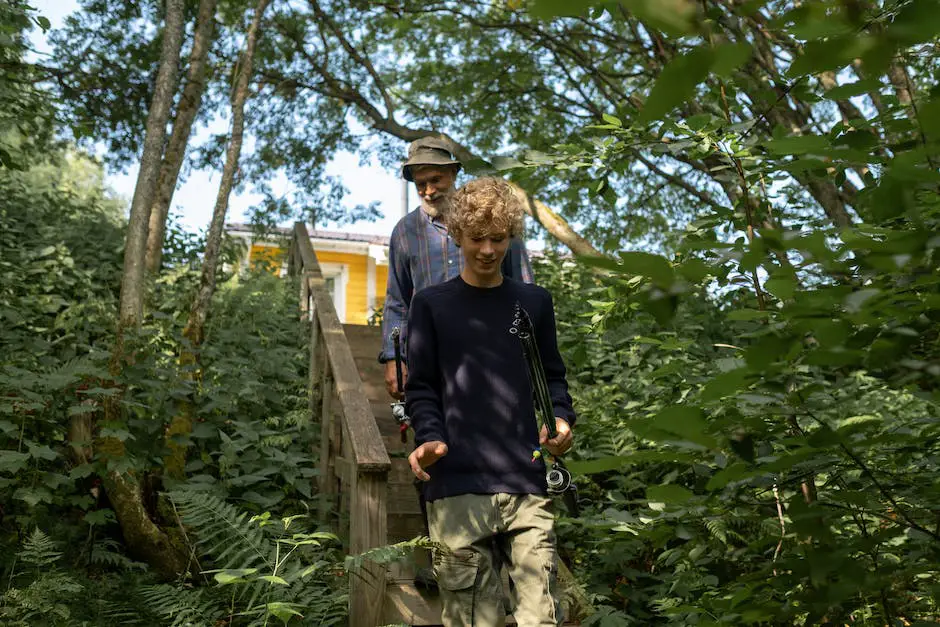
Top Fish Species in Georgia and Fishing Techniques
Top Freshwater Fish Species in Georgia
In Georgia, anglers are treated to a variety of prized fish species, paving the way for an enriching fishing experience. Key among these species include largemouth bass, trout, catfish, crappie, and striped bass. The state’s varied natural water bodies and carefully managed artificial lakes work in harmony to create ideal habitats for these fish. Consequently, this leads to bountiful fishing seasons all year round.
Largemouth Bass in Georgia
Among Georgia’s freshwater fishes, largemouth bass claims a large share of anglers’ attention. Its reputation as a hard-fighting game fish makes it a popular target. It’s best to fish for largemouth bass in the pre-spawn season, when they’re feeding heavily and more likely to bite. Soft plastics, spinnerbaits, and crankbaits make great bait options for these fish. Top locations for largemouth bass fishing in Georgia include Lake Lanier, Lake Hartwell, and Lake Oconee.
Fishing for Trout in Georgia
Georgia boasts some of the best trout fishing in the Southeast, with a thriving population of rainbow, brown, and brook trout. The state manages about 4,000 miles of trout streams, in part through a stocking program. Fly-fishing is a prevalent method due to trout’s insect-based diet. The Chattahoochee River is noted as a premier location for trout fishing, as well as Doyle’s River and Smith Creek.
Catching Catfish in Georgia
Catfish fishing in Georgia promises a thrilling experience, with blue, channel, and flathead catfish prolific in waters throughout the state. Because these species are most active during low light conditions, dawn and dusk are the optimal fishing times. A strong-smelling bait like chicken liver or nightcrawlers helps lure them in. The Altamaha River and the Chattahoochee River are particularly known for sizeable catfish.
Crappie Fishing in Georgia
Crappie is another favorite among Georgia anglers, with both black and white crappie present in good numbers. Crappie are most active from dawn to dusk and respond well to small spinners and jigs tipped with minnows. West Point Lake and Lake Blackshear are well known for their great crappie fishing.
Striped Bass Fishing in Georgia
Georgia hosts a significant population of landlocked striped bass, along with hybrid stripers, making it a prime destination for striper fishing. Troll or cast large swimbaits or live shad to attract these powerful fish. Some of the best places for striped bass fishing include Lake Sidney Lanier and Clarks Hill Lake.
In Georgia, freshwater fishing opportunities are abundant. A deeper understanding of the area’s top sport fish, including their habits, habitats, and favored bait, can significantly improve your fishing experience. Remember, it’s imperative to consult Georgia’s Department of Natural Resources to stay up-to-date with the latest fishing regulations, as they might change frequently.
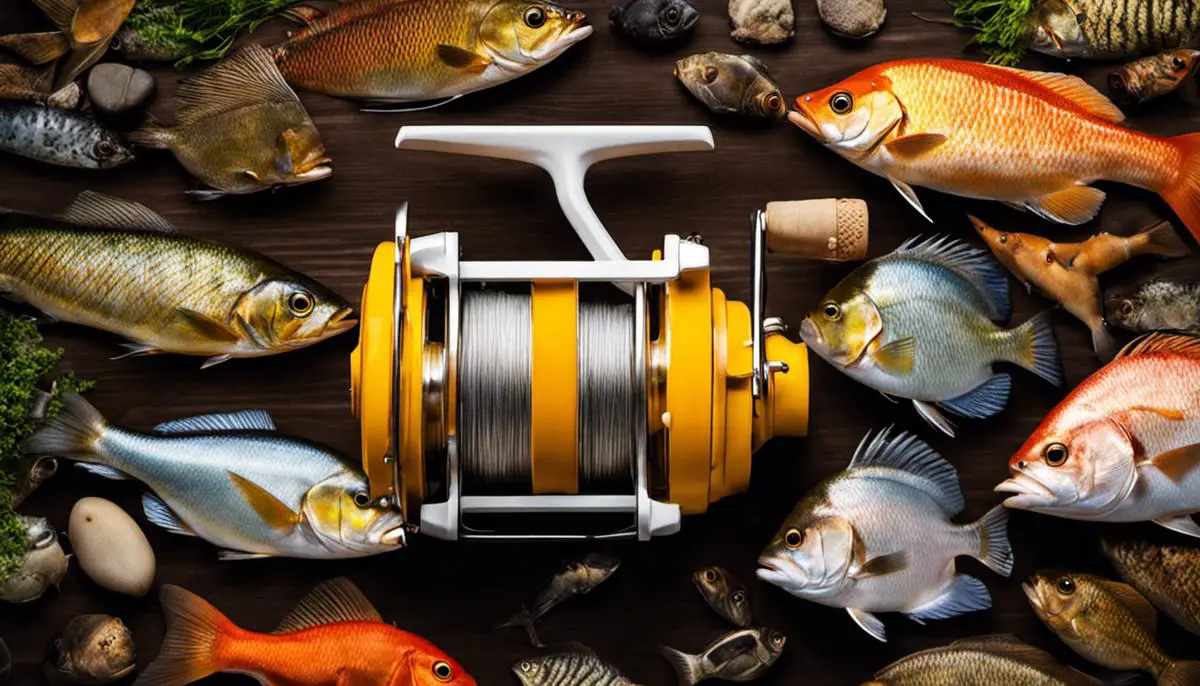
Best Times to Fish in Georgia
Fishing Seasons in Georgia’s Freshwaters
The plethora of aquatic environments in Georgia is home to a myriad of fish species, enabling a diverse fishing adventure all year round. However, the fishing season and conditions will greatly depend on the fish species you are angling for.
For trout enthusiasts, they thrive in the pristine waters of the north Georgia mountains, and while they can be fished year-round, the best period is from late fall to early spring. During this time, Georgia’s Department of Natural Resources typically stocks the streams with rainbow and brown trout.
Bass fishing is particularly rewarding as the largemouth bass, a species Georgia is famous for, starts feeding aggressively with the rising water temperatures in spring. The spawning season in late spring also favors larger catches.
Winter and early spring are the most advantageous times for crappie fishing, as crappies become more active during the mild winter and often dwell near underwater structures to find food and shelter.
Catfish, which can be caught throughout the year, tend to yield larger sizes from late spring to early fall during the warmer months.
Best Time of Day to Fish in Georgia
While the best fishing seasons in Georgia vary by species, time of day plays a crucial role in determining fishing success. In general, early morning and late evening are the peak periods for most freshwater fish because they tend to feed during these hours to avoid the intense heat of the day.
Bass and catfish are more active in the early morning and late afternoon during summer months. During winter, midday is the sweet spot for these species as the water warms up.
Additionally, overcast days can extend the feeding periods of fish such as crappies, which usually feed during crepuscular times.
Influence of Weather and Lunar Phases
Weather changes and lunar phases can also significantly impact fish behavior. After a rain, rivers often carry food that attracts fish, making it a beneficial time to fish.
In terms of lunar phases, fish are known to feed more during a new moon or a full moon. However, keep in mind that fishing during these times may require specialized equipment because visibility may be poor under these conditions.
Familiarizing Yourself with Georgia’s Fishing Regulations
Fishing in Georgia means adhering to certain established fishing regulations to safeguard its rich aquatic biodiversity. These provisions dictate various requirements and restrictions, such as fishing license mandates, bag and length limits, and equipment use restrictions. To make the most out of your freshwater fishing experiences in Georgia, staying well-informed about these rules and arranging your fishing trips in accordance with them is essential.
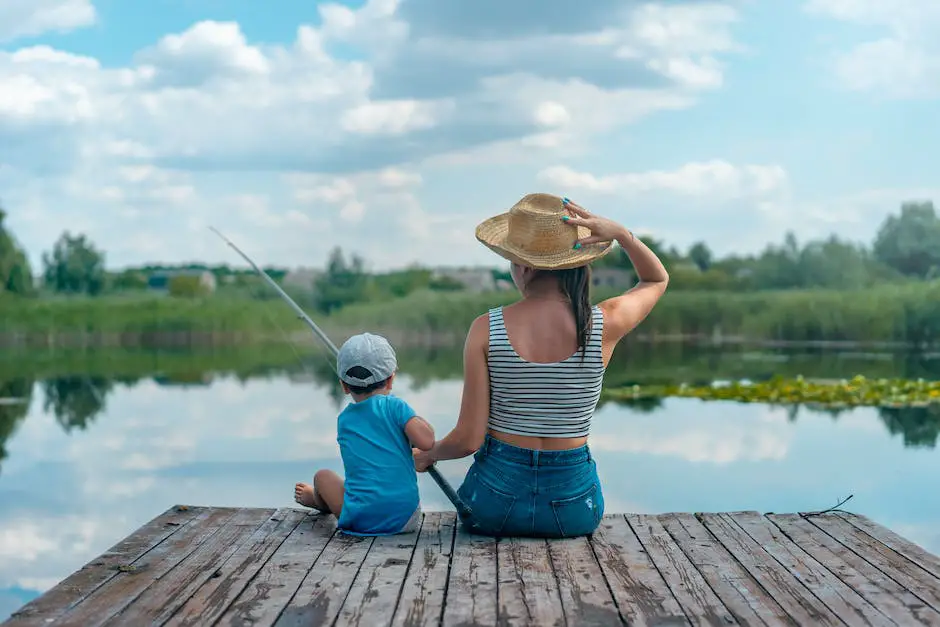
Fishing Regulations and Licensing in Georgia
How Georgia’s Fishing Regulations Preserve Fisheries and Benefit Anglers
Fishing guidelines in Georgia are intended to protect and enhance fish populations, thus presenting excellent fishing prospects for locals and tourists alike. These rules define limitations on the fishing seasons, methods, the quantity of catch, and permissible fishing gear. Moreover, the regulations also highlight the allowable sizes for the fish that can be retained. This helps to protect younger fish, allowing them to mature and reproduce, sustaining a robust fish population for future generations.
Licensing Procedures: What You Need To Know
In Georgia, anyone aged 16 and above needs a fishing license to fish in freshwater areas. This includes residents and non-residents who plan to fish in public waters. Fishing licenses are available for different durations – from short term to annual – depending on individual needs. They can be obtained online, in person at a licensed agent, by phone, or at the Georgia Department of Natural Resources offices. There are also special licenses that cater to seniors, military veterans, and persons with disabilities.
Fishing Seasons and Bag Limits: Preventing Overfishing
There are specific fishing seasons in Georgia which are structured to protect the reproduction cycle of various fish species. This also prevents overfishing, ensuring that fish populations remain healthy. For instance, trout season opens towards the end of March and continues through the end of October. Meanwhile, warm water game fish like bass and catfish can be caught year-round. Detailed information on seasons and bag limits can be found in the Georgia fishing regulations guide.
Catch and Size Limits: Promoting Sustainable Fishing
The Georgia Department of Natural Resources enforces catch and size limits to maintain balanced and thriving populations of freshwater species. These limits vary depending on the fish species. For example, the daily limit for crappie is 30 and each crappie caught must be at least 8 inches long. Adhering strictly to these rules not only ensures the sustainability of Georgia’s fisheries but also provides an exhilarating challenge for anglers.
Enforcement and Penalties for Illegal Fishing
Georgia’s Department of Natural Resources Law Enforcement Division is responsible for enforcing fishing regulations. Violations can lead to fines, penalties, and potential revocation of fishing licenses. This could include fishing without a license, exceeding bag or size limits, fishing out of season, or using illegal equipment. The public is also encouraged to report any violations they witness in order to help protect Georgia’s fisheries.
Protecting Georgia’s Aquatic Riches: Conservation Programs and Efforts
Georgia’s aquatic ecosystems owe their sustainability to the vital funds derived from fishing license sales. The fees gathered are directed towards numerous conservation initiatives including fish population surveys, habitat rejuvenation, and fish stocking. Moreover, these funds also support education and community outreach efforts aimed at stewardship in fishing. In essence, every law-abiding angler is a contributor towards the preservation and enhancement of the fishing landscape of Georgia.
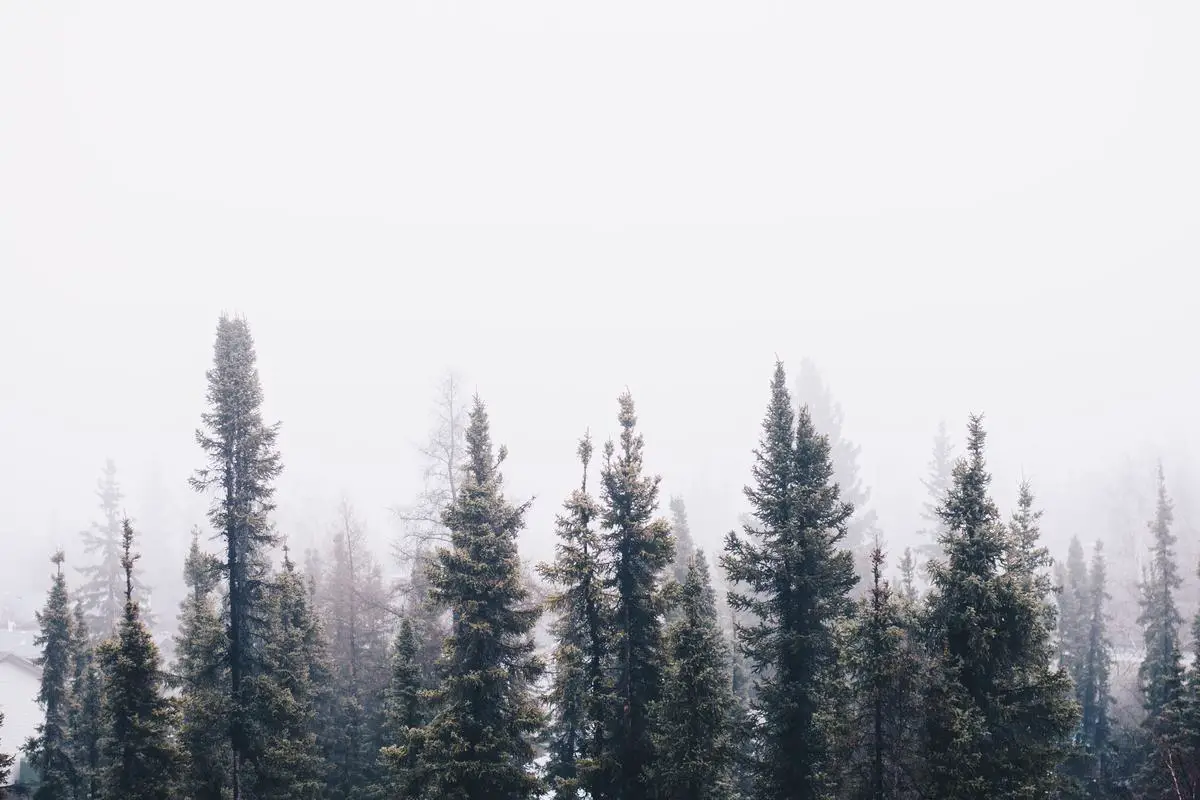
Top Freshwater Fishing Spots in Georgia
An Angler’s Paradise: Lake Lanier
No freshwater fishing location in Georgia beats the notoriety of Lake Lanier. Nestled in the northern parts of the state, Lake Lanier unfurls across a staggering 37,000 acres, plunging to depths of 160 feet. The enormity and depth of the lake host a smorgasbord of fish species such as Large Mouth Bass, Crappie, and Catfish. Accessibility is made convenient with numerous marinas, docks, and public landings dotting the extensive shoreline. The added features of picnic areas, campsites, and boat rental facilities enhance the overall visitor experience, elevating fishing at Lake Lanier to more than just an activity, but an enriching adventure.
Fishing at Chattahoochee River
Chattahoochee River stretches over 430 miles across Georgia, providing ample fishing opportunities. Renowned for its trout fishing, the river is stocked by the authorities with different trout species, including Rainbow, Brown, and Brook. However, anglers should be aware that access can be varied, with some points being relatively easy to find, and others requiring a good knowledge of local terrain. The Chattahoochee River National Recreation Area offers developed fishing spots, hiking trails, picnic areas, and canoe rentals, catering to all types of outdoors enthusiasts.
The Rich Resource of Carters Lake
Carters Lake, located in the foothills of the Blue Ridge Mountains, spans over 3,200 acres and is cherished for its scenic beauty as well as its abundant fishing opportunities. Highly sought-after species like Striped Bass, Walleye, and Spotted Bass can be caught here. As it is a deep, clear lake with many submerged trees and drop-offs, it can be more challenging for beginners. However, with ample boat ramps, fishing pier, and campgrounds available, it becomes highly manageable and enjoyable for all levels.
Mitchell Lake: Crappie Haven
In Southwest Georgia, Mitchell Lake is a renowned fishing location known for its abundant Crappie population. While Crappie is the primary catch, anglers can also reel in Catfish, Large Mouth Bass, and Striped Bass. Ease of access to Mitchell Lake is high, with two boat ramps and several public fishing areas. The lake also boasts campground facilities and hiking trails for those wishing to extend their fishing experience into a weekend getaway.
The Diversity of the Altamaha River
Stretched over 137 miles, the Altamaha River is Georgia’s longest free-flowing river system and offers a unique freshwater fishing experience. This biodiverse waterway hosts over 120 species of fish including Sturgeon, Catfish, Bass, and Shad. Access is attainable through various public boat ramps along its course. Besides fishing, the river is fantastic for canoeing and wildlife viewing, making it a preferred spot for nature enthusiasts.
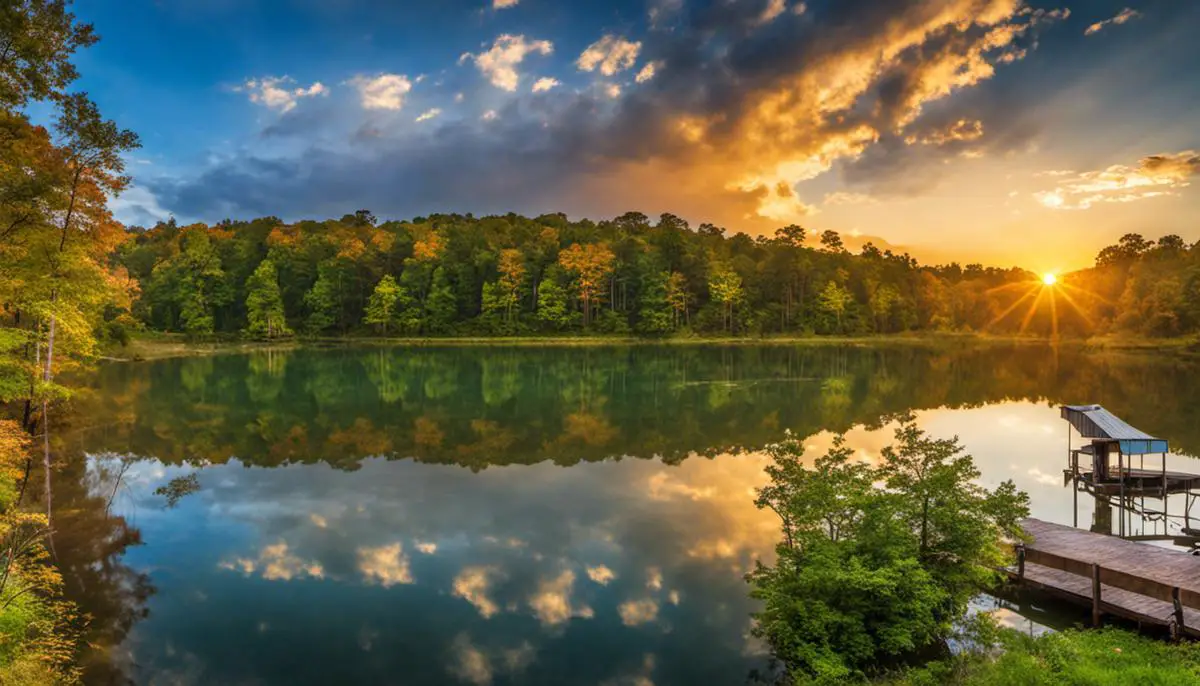
Indeed, Georgia’s freshwater fishing is marked by its abundant range of fish species, unrivaled natural beauty, and comprehensive regulations that ensure sustainable enjoyment for all anglers. It’s not just about the catch – it’s about immersing oneself in the serene environments of Georgia’s lakes, rivers, and streams, mastering the skill of different fishing techniques, and participating in the preservation of these natural resources. Whether you’re an avid angler seeking your next big catch, or a novice exploring the peaceful sport – armed with the knowledge of the top fishing spots in Georgia, the fish species you can expect to find, the most effective tips and tricks for each one, and a clear understanding of the regulations that safeguard these resources, your fishing adventures in Georgia are guaranteed to create unforgettable memories.
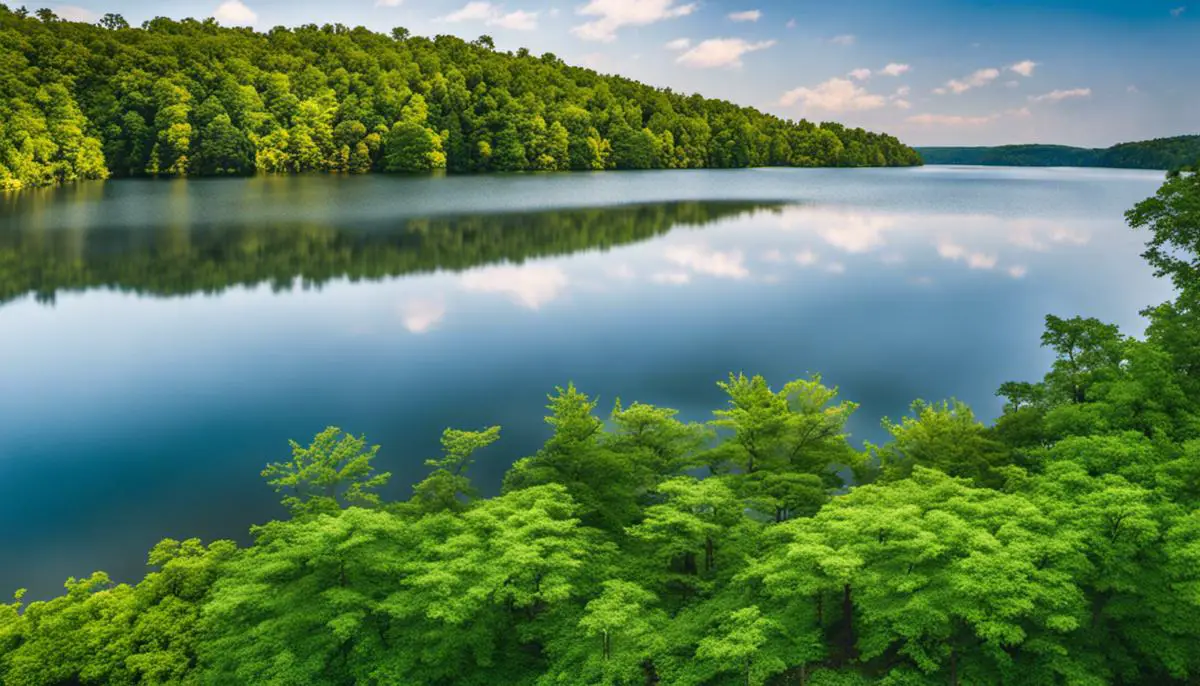


Welcome to our blog!